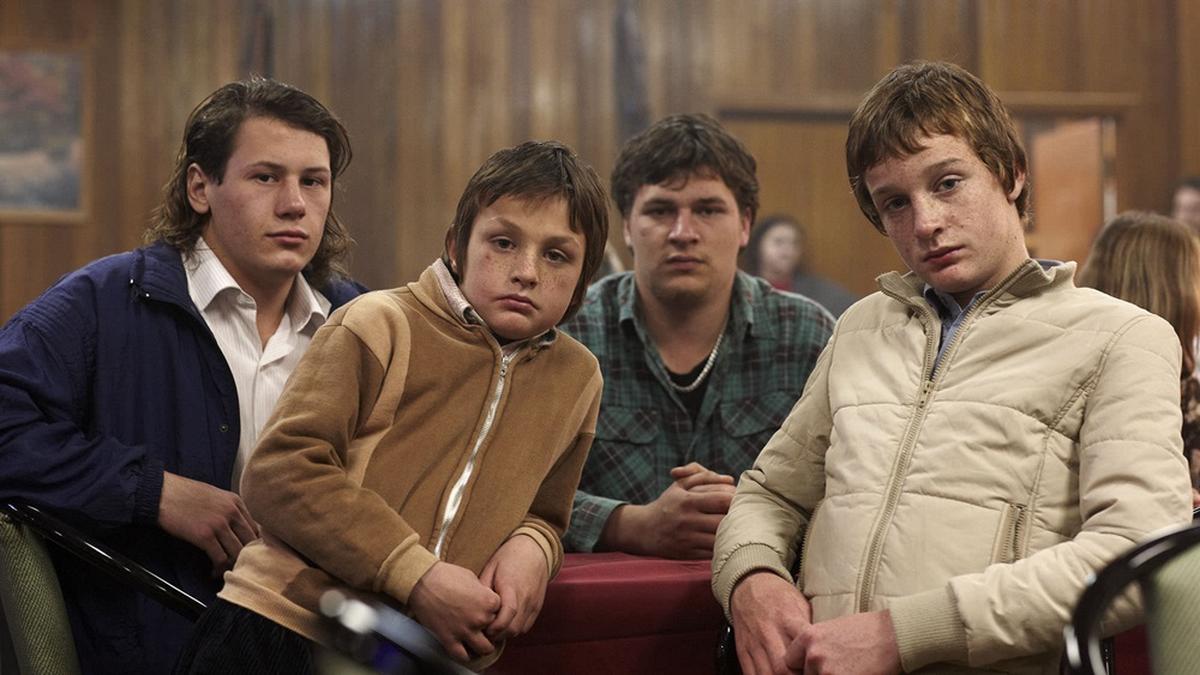There is an old truism that the most dangerous thing in the world is a bored young man. In the 21st century, we have discovered that the second most dangerous thing is a bored young man with an Internet connection. And so it begins with a boy, a laptop, and thealgorithm. In Netflix’s smash hit limited series Adolescence, a lonely teenager seems to find solace on the Internet, only to be lured towards vitriolic rhetoric, conspiracy-laden “truths,” and a digital brotherhood that preys on his insecurities. In its brilliant third episode, he spirals deeper into this ‘manosphere’ — a loosely connected network of misogynistic influencers, incel forums, and self-proclaimed alpha males — while we watch on with mounting dread as his perception of reality is warped beyond recognition.
Adolescence is crafted as both a psychological thriller and a cautionary tale, tracing the way online extremism seeps into impressionable minds. Creators Jack Thorne and Stephen Graham explore the mechanics of radicalisation and the unnerving ease with which a child can become a soldier in a digital war against women, or the ‘others’.
The legacy of indoctrination
The themes explored in Adolescence echo a long tradition of cinema examining the radicalisation of the young and the vulnerable. Shane Meadows’ This Is England looks at how a rudderless youth, yearning for belonging, is seduced by the allure of camaraderie before realising too late that he’s been recruited into something far uglier. Justin Kurzel’s Snowtown paints an even bleaker picture — how abuse, poverty, and unchecked nihilism turns a boy into a monster. These films unpack this gradual metamorphosis for what it is: an entrapment and a corrosion of innocence.

A still from Justin Kurzel’s ‘Snowtown’
| Photo Credit:
Prime Video
Gus Van Sant’s Elephant and Lynne Ramsay’s We Need to Talk About Kevin have burrowed into the psychology of troubled teens, depicting the slow boil and accumulation of resentment that eventually erupts in indiscriminate carnage. Yet, for some, these films have served as a kind of grim wish-fulfilment, a fantasy of ultimate retribution against a world that has failed to acknowledge them.
Perhaps the most unsettling realisation is that this cycle of radicalisation is self-sustaining. A film like Fran Kranz’s Mass, which grapples with the aftermath of school shootings by focusing on the parents of both the victim and the perpetrator, should serve as an antidote to the glorification of these figures. Instead, it’s drowned out by more easily digestible, memeable content — Travis Bickle looking into the mirror, flexing his gun; the Joker dancing on the stairs; Patrick Bateman adjusting his tie.
From critique to celebration
As Internet subcultures mutate, metastasising across YouTube recommendation algorithms and Discord servers, a certain brand of alienated, violently repressed masculinity has found its icons in a peculiar set of films. The “sigma male” idea of the antihero has innocuously taken root, its gospel (very un-ironically) preached through hyper-saturated Instagram Reel edits and Twitter threads rife with Nietzschean self-mythologising.

The sociopathic narcissism of American Psycho’s Patrick Bateman is aspirational, Travis Bickle’s psychotic unraveling in Taxi Driver is framed as a righteous crusade, and the grinning nihilism of the Joker is a blueprint for emancipation rather than anything cautionary. The Internet’s most jaded corners have idiotically reverse-engineered these films, turning critiques of masculinity into role models, and spawned a generation of disaffected men marinating in grievance, convinced the world owes them something and that the only way to claim it is through brute force.

A still from Martin Scorsese’s ‘Taxi Driver’
| Photo Credit:
MUBI
Cinema has become an inadvertent tool for recruitment. David Fincher’s Fight Club remains one of the most misinterpreted films of all time, a satire of toxic masculinity that has instead become a Bible for men who mistake Tyler Durden’s nihilistic manifesto for genuine wisdom. Martin Scorsese’s The Wolf of Wall Street is another entry into this club. These films were meant to expose the grotesqueness of unchecked ego and ambition, yet they have been reclaimed by the very demographic they sought to critique.
The incubators of discontent
What makes Adolescence especially relevant, however, is its focus on the Internet as the primary vehicle for indoctrination. Jamie’s transformation isn’t driven by a singular, Svengali-like figure or a shadowy cabal of Internet misogynists whispering poison into his ear. Once a boy like Jamie shows interest in a single video about “sigma male grindsets” or the “truth about modern dating,” the algorithm takes the wheel, steering him into darker, more radical waters.

Platforms like Reddit, 4Chan, and QAnon operate as incubators for antipathy, where every perceived social slight — rejection, loneliness, lack of success — is reframed as proof of a grand conspiracy against men. The pipeline is seamless: a lost teen stumbles onto a self-improvement forum, then drifts toward “red pill” ideology, then finds himself watching hour-long rants from self-styled masculinity gurus who peddle a cocktail of misogyny, nihilism, and barely disguised fascism. Whether they brand themselves as “sigma males,” pickup artists, or political revolutionaries, these figures operate with the same cynical playbook: stoke resentment, validate insecurity, and then offer a solution that involves total emotional detachment and the rejection of all women as either obstacles or rewards. The rhetoric is deceptively empowering — “Take control of your life!”, “Be the top dog!” — but the message is rotten at its core.
This is how the Internet turns into an accelerant. The kind of ideological radicalisation depicted in Tony Kaye’s American History X, Daniel Ragussis’ Imperium, and Spike Lee’s BlacKkKlansman, is no longer limited to skinhead meetings in dingy basements. It’s a process not unlike the pathways explored in the Netflix documentary, The Antisocial Network, streamlined for the digital age, where ideological extremism isn’t confined to romanticised secret meetings or underground pamphlets — it’s right there, nestled between gym vlogs and finance bros selling the illusion of control. Social media doesn’t care if young men are developing mass shooter manifestos or just memorising Bateman or Bicklemonologues. It only cares that they stay locked in, watching, and consuming.

A still from ‘Adolescence’
| Photo Credit:
Netflix
This is the same machinery that elevated the Andrew Tates of the world from Internet curiosities to household names. Their appeal hinges on speaking to young men who feel disenfranchised, offering them a roadmap for reclaiming their supposed lost power. The tragedy, as Adolescence illustrates, is that boys like Jamie don’t realise they’re being manipulated until it’s too late.

We are watching, in real-time, the commodification of disaffection and the packaging of violence into a sleek, digestible fantasy. And the most terrifying part of it is that the people who need to understand the danger the most will never see themselves in these cautionary tales. They’ll just see a man who finally takes what he believes is his.
Adolescence is currently streaming on Netflix
Published – March 28, 2025 08:30 am IST
